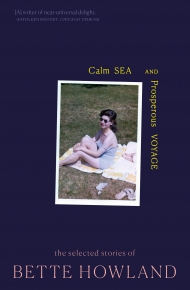On Marilynne Robinson’s “You Need Not Doubt What I Say Because It Is Not True”
• Alexander Chee • November 25, 2013
Do we need to make a case for fiction, you might ask. Especially if you write fiction, there may be no question, to you. But in my experience, for most of our fellow citizens, what we do is invisible, unimaginable. “I couldn’t do it,” so many people tell me. And if it is invisible and unimaginable, it is also, I’m afraid, indefensible. And so we see it is attacked, so often, repeatedly brushed off as decorative instead of essential, and denied funding, denied space, denied serious attention and study. Denied, denied, denied.
In America, and perhaps all over the world, we have lived for some time in an open war on the humanities enabled in part by the way in which we haven’t taught ourselves to defend against the way this war is waged—and our attackers arrive using this blind spot, heavily invested in denying us the ability to think critically, much less think about what makes us human—or inhuman—to ourselves and others. Written by Marilynne Robinson to address the questions of her students—”Why write fiction, they ask, and why read it?”—"You Need Not Doubt What I Say Because It Is Not True" trains our attention on the various cultural myths and conventional wisdom that have us asking these questions at all. Robinson sets for herself the task of addressing how what fiction does for the reader and the culture is woven deeply into the most ordinary and extraordinary acts. Undertaken with her usual wide-ranging style, in which she takes you so far past the limits of what you thought you knew, you are a little surprised to arrive at the end, somehow at home with what you never knew before this moment, her essay is no less than a call to what she names as "an ultimate loyalty to ourselves which we are all too ready to withhold."
Marilynne Robinson's essay appeared in Issue 1 and is now available to subscribers in the online archive.
Back to Top
Categories
Archive
About
A Public Space is an independent, non-profit publisher of the award-winning literary and arts magazine; and A Public Space Books. Since 2006, under the direction of founding editor Brigid Hughes the mission of A Public Space has been to seek out and support overlooked and unclassifiable work.
Featured Title

"A ferocious sense of engagement... and a glowing heart." —Wall Street Journal
Current Issue

Subscribe
A one-year subscription to the magazine includes three print issues of the magazine; access to digital editions and the online archive; and membership in a vibrant community of readers and writers.
Newsletter
Get the latest updates from A Public Space.
